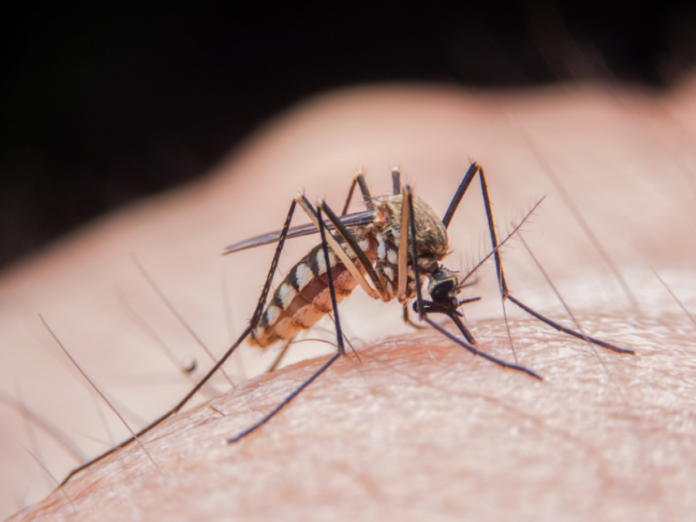
The Pinal County Public Health Services District this week detected mosquitoes with the West Nile virus during routine seasonal surveillance.
It did not specify where the mosquitoes were found.
Health officials said it is important for county residents to be vigilant in preventing mosquito breeding and bites after significant monsoon rains recently.
Not all mosquitoes transmit the virus. The county’s Environmental Health vector control program conducts regular surveillance to search for the specific mosquitoes associated with human disease. It uses the data as part of the department’s disease prevention efforts to reduce the risk of mosquito-borne disease.
Chris Reimus, manager of the county’s Environmental Health program, said detection of the virus is nothing new.
“Last year we had a significant West Nile virus season in Pinal County and statewide,” he said. “This year, things have progressed more slowly, but it is still important to be vigilant to protect our community. Our program focuses on surveillance and source reduction of mosquito breeding areas. If everyone does their share to reduce mosquito breeding in the community, it can go a long way to protect our citizens and their families from disease.”
Not everyone who gets mosquito-borne diseases has symptoms, but for those who do, some may experience lasting or permanent effects. In the worst cases, the diseases can be fatal.
To help prevent mosquito-borne illnesses, including from the West Nile virus, the department advises the following:
- If you have a swimming pool, keep it operational. If you must take it out of use, be sure you remove the standing water, keep it chlorinated and run the filter daily.
- Eliminate standing water where mosquitoes can lay their eggs. Check for outdoor items that collect water, including cans, bottles, buckets and old tires, and get rid of them. Change water in flower vases, bird baths, planters, troughs and animal watering pans at least twice a week.
- Repair leaky pipes and outside faucets and move air conditioner drain hoses frequently to prevent standing water.
- Apply EPA-registered and CDC-approved insect repellent and wear protective clothing. Even a short time outdoors is long enough to get bitten.



![Maricopa restaurateur makes Food Network connection [Namkeen Dhaba]](https://www.inmaricopa.com/wp-content/uploads/2024/04/439456716_377105198650519_7536248579664805896_n-218x150.jpg)







![City gave new manager big low-interest home loan City Manager Ben Bitter speaks during a Chamber of Commerce event at Global Water Resources on April 11, 2024. Bitter discussed the current state of economic development in Maricopa, as well as hinting at lowering property tax rates again. [Monica D. Spencer]](https://www.inmaricopa.com/wp-content/uploads/2024/04/spencer-041124-ben-bitter-chamber-property-taxes-web-218x150.jpg)
![Maricopa’s ‘TikTok Rizz Party,’ explained One of several flyers for a "TikTok rizz party" is taped to a door in the Maricopa Business Center along Honeycutt Road on April 23, 2024. [Monica D. Spencer]](https://www.inmaricopa.com/wp-content/uploads/2024/04/spencer-042324-tiktok-rizz-party-flyer-web-218x150.jpg)


![Maricopa restaurateur makes Food Network connection [Namkeen Dhaba]](https://www.inmaricopa.com/wp-content/uploads/2024/04/439456716_377105198650519_7536248579664805896_n-100x70.jpg)
